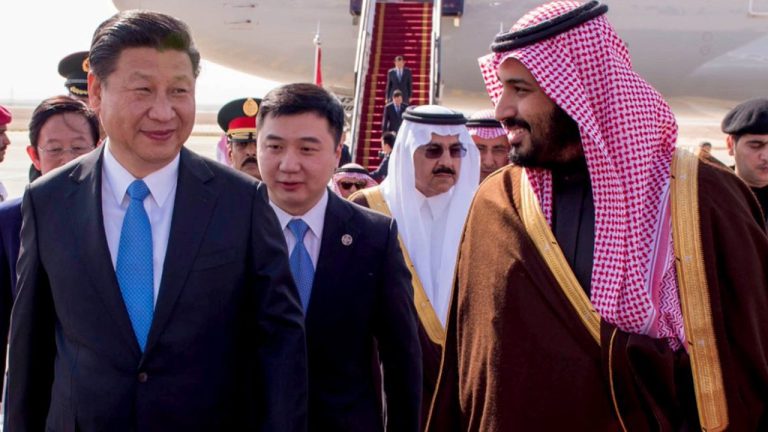
On Sunday, Saudi Arabia and several major oil producers announced their plan to cut oil production by 1.15 million barrels per day, starting in May and continuing until the end of 2023. According to the Saudi Energy Ministry, the move was coordinated with some members of the Organization of the Petroleum Exporting Countries (OPEC) and non-OPEC members as a “precautionary measure” to stabilize the oil market.
Geopolitical Implications: The Move to Cut Oil Production Comes Amid Shifting Alliances and Tensions Between Major Players
This weekend, Saudi Arabia and several major oil producers, including Russia, the United Arab Emirates (UAE), Iraq, Kuwait, Oman, and Algeria, plan to reduce oil production by a total of 1.15 million barrels per day.
Saudi Arabia and Russia announced that each country would decrease oil production by 500,000 barrels per day (bpd), while the UAE will cut 144,000 bpd and Kuwait will reduce production by 128,000 bpd.
The announcement of the oil superpowers’ decision to cut supply follows the reductions made in October, when oil-producing nations announced a decrease in production by 2 million bpd. At the time, the Biden administration expressed its anger and warned of “consequences.”
On Sunday, the White House responded to the surprise cuts, and a spokesperson for Biden’s National Security Council said the United States does not believe that reducing production is advisable.
The spokesperson also stated that Biden’s administration would continue to collaborate with oil producers to maintain low prices at the pump for American gas consumers. This news follows several reports over the last week indicating that several large nations are shifting away from U.S. dollar settlements.
According to Alexander Babakov, the deputy chairman of the State Duma, the BRICS countries (Brazil, Russia, India, China, and South Africa) plan to discuss the creation of a new reserve currency for the group of countries. In addition, China recently struck a bilateral deal with Brazil that enables trades in their respective national currencies to purchase Liquefied Natural Gas (LNG).
Furthermore, with China’s rapid growth, the BRICS bloc is now the world’s largest gross domestic product (GDP) group. Saudi Arabia and other major oil producers believe that the reduction in production will help stabilize the oil market and is being implemented as a “precautionary measure,” according to Riyadh’s energy agency.
Data indicates that despite the oil production cut in October, prices of Brent crude and other measures of oil per barrel have decreased from $95 per barrel to $80. Last October, Democrat policymakers wanted to cut ties with Saudi Arabia, remove troops from the region, and end arm sales.
What are your thoughts on the implications of the oil production cuts by Saudi Arabia and other major oil producers? Do you believe it will have a significant impact on global oil prices and the economy? Share your thoughts about this subject in the comments section below.